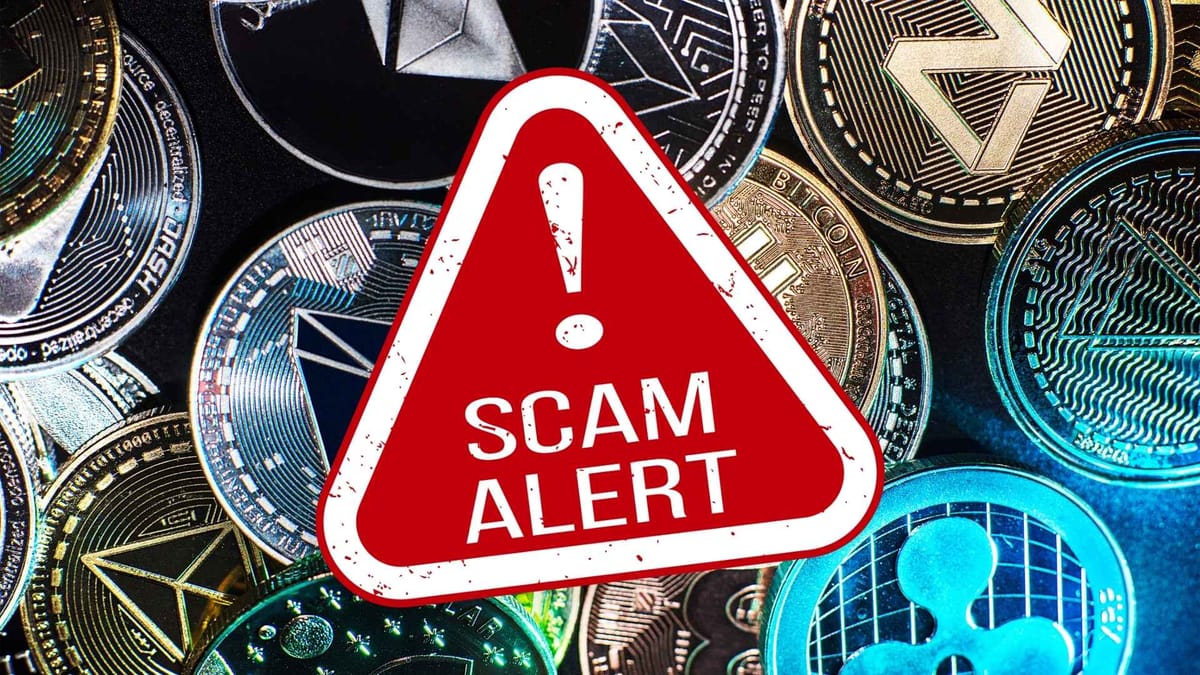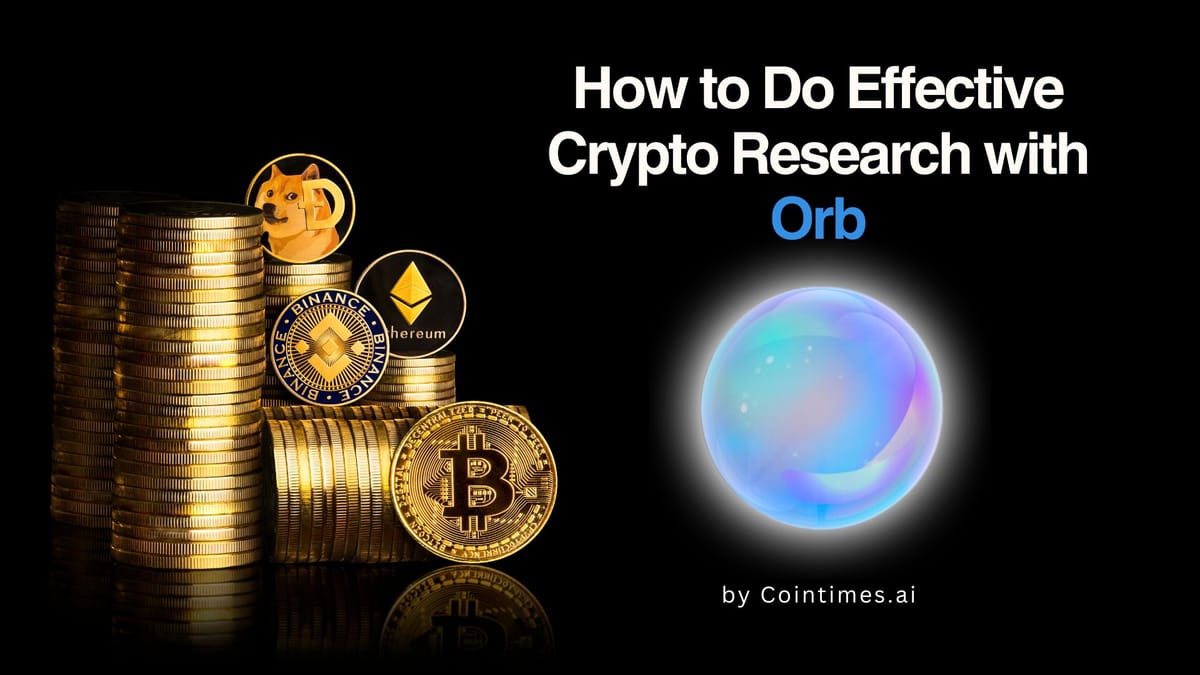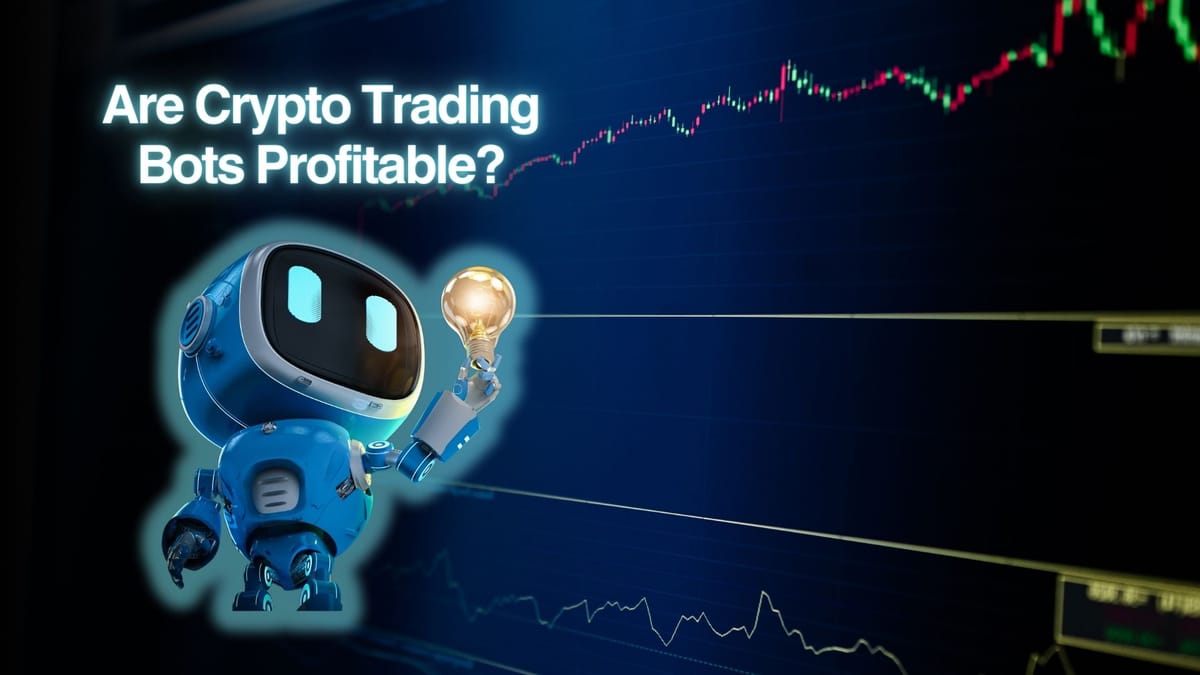How to Identify Fake Tokens: Common Red Flags, Tools & More

What is a Fake Token?
A “fake token” is a cryptocurrency created by fraudulent actors, often lacking genuine utility, security measures, or legitimate backing, and is designed solely to scam investors out of their funds.
These tokens are frequently distributed through methods like airdrops and decentralized exchanges, leading to their proliferation in the crypto market.
This guide will provide practical steps, highlight red flags, and introduce tools to help you identify fake tokens and safeguard your investments.
Table of Contents
8 Common Red Flags a Token is Fake
Steps on How to Verify a Token’s Legitimacy
Tools to Help You Spot Crypto Scams
Frequently Asked Questions
8 Common Red Flags a Token is Fake
Conducting thorough due diligence is crucial when investing in early-stage tokens and memecoins, as the cryptocurrency space is rife with scams and high-risk projects.
Without a careful vetting process, you can fall victim to deceptive schemes that exploit the excitement around new tokens, leading to significant financial losses.
To help you avoid these pitfalls, here are some essential red flags to look out for when evaluating new crypto projects:
- Lack of Verified Information
Legitimate tokens provide transparent details about their utility, team, and partnerships. Fake tokens often lack this depth of information, raising concerns about their legitimacy.
- No Whitepaper or Vague Whitepaper
Legitimate projects generally publish a clear whitepaper that outlines their goals, use cases, and tokenomics. Fake tokens may have no whitepaper or provide one filled with generic, non-specific content, which often lacks a tangible plan.
- Anonymous or Unverifiable Team
A visible, transparent team is a hallmark of legitimate tokens. Many fake tokens have anonymous or unverifiable team members, which can be a red flag, as scammers often avoid attaching real identities to projects.
- Dubious Social Media Profiles
Fake tokens often inflate their social presence with bought followers or automated engagement. Look for genuine user interaction, as a lack of authentic comments or likes may indicate a false community.
- Unverified Source Code
An unverified contract on explorers like Etherscan can be a red flag, as scammers may hide malicious code within the contract, preventing investors from assessing potential risks.
- High Centralization of Token Holdings
When a few wallets hold the majority of a token’s supply, there’s a high risk of a “rug pull,” where major holders can dump their assets, causing significant losses for investors.
- No Liquidity Lock
Locked liquidity ensures that funds remain accessible for trading, while scams often keep liquidity unlocked to withdraw funds and disappear quickly. Always verify a project’s liquidity lock to mitigate risk.
- Suspicious Transaction Patterns
Irregular trading volumes, frequent small transactions, or sudden surges in trading activity can be red flags. Scammers often manipulate transaction data to create an illusion of popularity or demand.
Steps on How to Verify a Token’s Legitimacy
Now that you know what red flags to look for, here’s a step-by-step guide to help you verify a token’s legitimacy.
Step 1: Conduct a Thorough Background Check
- Search the Token Name and Contract Address
Start by searching the token's name and address on trusted platforms and forums. Scam reports or warnings often surface quickly when others have spotted suspicious activity.
- Verify Social Media and Website Presence
Look for active social media accounts with genuine engagement. Check if the project’s website is secure, regularly updated, and free from errors.
- Review the Whitepaper Carefully
A legitimate project will have a detailed whitepaper, discussing:
- tokenomics
- use case
- roadmap, etc.
Beware of vague or overly technical language designed to mislead.
Step 2: Use Blockchain Explorers
- Check Contract Verification
Visit explorers like Etherscan or BscScan to confirm if the token’s contract source code is verified. Unverified contracts can be modified without notice.
- Analyze Top Wallet Holders
Look for a balanced token distribution. High concentrations held by a few wallets suggest risk of manipulation or “rug pull” schemes.
- Review Transaction Patterns
Irregular transactions, like rapid buy-sell cycles, can indicate bot-driven or artificially inflated activity. Consistent, natural volume is a better sign of a real project.
Step 3: Verify Listings and Reviews on Trusted Platforms
- Check Token Listings on Aggregators
Reputable platforms like CoinGecko, DappRadar, and CoinMarketCap list legitimate tokens. If a token isn’t listed, proceed with caution.
- Review DappRadar Blacklists
DappRadar keeps a record of confirmed scam tokens—check these lists to avoid known scams.
- Look for Third-Party Audits
Audits by firms like CertiK or Quantstamp add credibility. Scams usually lack external reviews.
Step 4: Analyze Liquidity and Exchange Presence
- Verify Liquidity Pool on DEXs
Healthy projects generally maintain liquidity pools over $100,000. Low liquidity allows scammers to withdraw funds easily.
- Check Centralized Exchange Listings
Tokens listed only on decentralized exchanges (DEXs) should be treated carefully. Centralized exchanges (CEXs) typically require stricter due diligence before listing.
This comprehensive verification process, paired with specialized tools, can help you identify scams and invest with greater confidence.
Tools to Help You Spot Crypto Scams
To supplement your research on evaluating new cryptocurrencies, here’s a list of essential tools that can help you spot potential scams, analyze liquidity, and monitor transaction patterns.
These tools are ideal for checking key legitimacy factors like contract verification, token holder distribution, and liquidity lock status.
1. Orb
Developed by the Cointimes.ai team, Orb is a revolutionary AI research agent tailored for the dynamic world of cryptocurrency. Unlike traditional AI tools, Orb pulls real-time data from the web and blockchain, offering traders accurate insights free from the biases of outdated or static datasets.
Key Features:
- Real-Time Updates: Always connected to the latest market trends, regulatory changes, and community sentiment.
- Multi-Step Analysis: Breaks down complex queries into manageable parts, ensuring comprehensive and detailed responses.
- Reliable Insights: By cross-referencing multiple sources, Orb minimizes misinformation and enhances factual accuracy.
Use Cases:
- Investment analysis to spot emerging trends.
- Monitoring blockchain developments for developers.
- Regulatory updates to ensure compliance.
2. Dex Screener
A go-to tool for tracking decentralized exchange (DEX) data across various blockchains, including Ethereum, Binance Smart Chain, and Solana.
Why Use It:
- User-Friendly Interface: Simplifies the process of finding new tokens and analyzing trading pairs.
- Comprehensive Filters: Allows users to filter by various parameters, including price movements and liquidity.
Perfect For: Traders looking to catch trending coins early and analyze liquidity before diving in.
3. RugCheck
RugCheck is an essential safety tool for Solana investors.
Main Benefits:
- Scam Detection: Analyzes token contracts for potential red flags.
- Holder Statistics: Provides insights into the distribution of token holdings, helping to identify potential "rug pull" scenarios.
Ideal For: Investors keen on avoiding scams and ensuring the safety of their investments.
4. Solscan
A block explorer specifically for the Solana blockchain, providing detailed transaction history and wallet activity.
Why You Need It:
- Real-Time Data: Keeps track of recent transactions and block confirmations.
- Advanced Analytics: Offers insights into token performance and wallet activities.
Best For: Developers and traders looking for in-depth analysis of Solana's network activity.
5. Cryptogugu
A platform designed to discover new meme coins and provide early insights into potential investment opportunities.
Highlights:
- Community Insights: Leverages community sentiment to gauge the popularity of emerging tokens.
- Trend Analysis: Tracks social media mentions and discussions around new cryptocurrencies.
Perfect For: Investors wanting to stay ahead of the curve with meme coins.
6. Photon
An all-in-one platform for trading and analyzing cryptocurrency markets.
Key Features:
- Integrated Tools: Combines trading and charting capabilities for a seamless experience.
- User-Friendly Design: Ideal for both beginners and experienced traders.
Why It Matters: Helps users make informed decisions quickly and efficiently without juggling multiple tools.
7. Bird Eye
Quick Overview: A chart analysis tool designed for crypto traders to visualize market data effectively.
Main Benefits:
- Detailed Charts: Provides extensive charting options to track price movements.
- Customizable Indicators: Users can set up alerts and indicators tailored to their trading strategies.
Best Suited For: Traders focused on technical analysis to inform their buying and selling decisions.
Wrapping It Up
Recognizing the telltale signs of fraudulent projects is essential for safeguarding your investments. Stay vigilant by utilizing the verification steps outlined in this guide.
Remember, thorough research is not just a precaution—it's a necessity in a market where new opportunities emerge every day alongside potential pitfalls. Equip yourself with the right tools like Orb, stay informed, and invest wisely to protect your financial future.
FAQ
What is a fake token?
A fake token is a cryptocurrency created by scammers that typically lacks genuine utility, security, or legitimate backing. It is designed to deceive investors and often involves fraudulent schemes like airdrops or trading on decentralized exchanges.
How can I identify a fake token?
Look for common red flags such as a lack of verified information, no or vague whitepapers, anonymous teams, dubious social media profiles, unverified source code, and high centralization of token holdings. Always conduct thorough research before investing.
What tools can I use to verify a token's legitimacy?
Useful tools include Orb for real-time data, Dex Screener for DEX analytics, RugCheck for scam detection, Solscan for transaction history, and Cryptogugu for discovering new meme coins. These tools can help you assess various legitimacy factors.
Why is liquidity important when evaluating a token?
Liquidity indicates how easily a token can be bought or sold without affecting its price. Low liquidity can be a sign of a scam, as it allows the scammers to withdraw funds easily and disappear.
Should I invest in tokens listed only on decentralized exchanges (DEXs)?
Exercise caution. While DEXs can provide opportunities for new tokens, those only listed on DEXs may lack the scrutiny and credibility of tokens listed on centralized exchanges (CEXs). Always verify their legitimacy and liquidity before investing.
What should I do if I suspect a token is fake?
If you suspect a token is fake, refrain from investing and report it to relevant platforms or forums. Conduct further research to confirm your suspicions, and consider warning others in the community to help prevent further scams.

| Latest Posts



